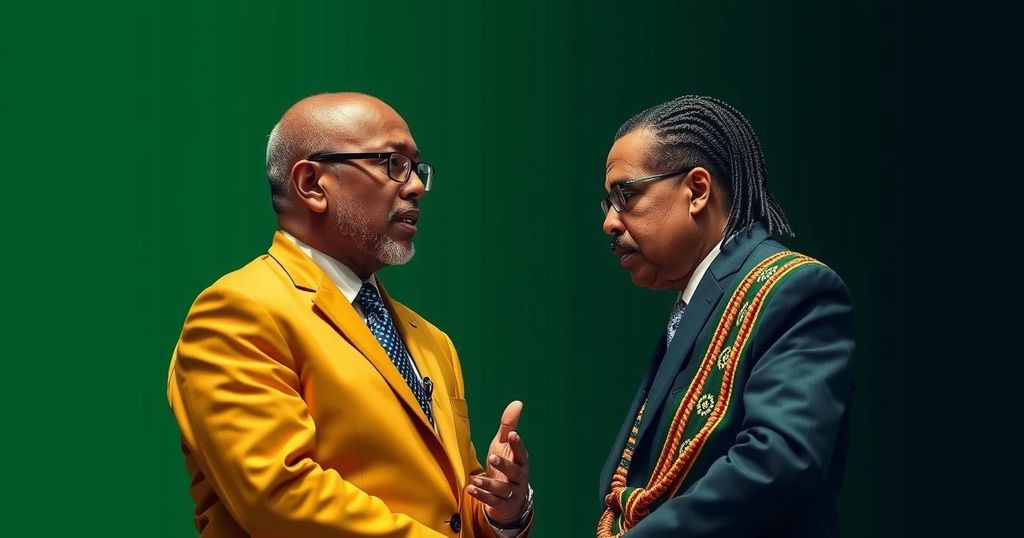Eritrean President Isaias Afwerki stated that recent partnerships with Somalia and Egypt do not form an alliance against Ethiopia. He emphasized the importance of stability and cooperation in the Horn of Africa amid rising tensions. Afwerki criticized external disinformation and highlighted ethnic conflicts within Ethiopia, reaffirming Eritrea’s commitment to peace in the region.
In the aftermath of the recent Tripartite summit in Asmara, Eritrean President Isaias Afwerki has clarified that the discussions held were not aimed at forming an alliance against Ethiopia. He emphasized that the partnership with Somalia and Egypt is focused on promoting stability in the Horn of Africa, rather than instigating conflict. Afwerki described allegations of an anti-Ethiopian axis as propaganda designed to breed distrust among neighboring countries, reinforcing Eritrea’s position that it does not wish to see Ethiopia destabilized.
The backdrop to Afwerki’s remarks includes rising tensions in the region, particularly involving Ethiopia’s activities along the Red Sea and the conflict over Somaliland’s strategic access. These developments have caused friction, not only between Ethiopia and Somalia but also with Egypt, particularly concerning shared interests in the Nile Basin. In this context, Egypt has taken on a leadership role within the African Union Support and Stabilization Mission in Somalia, which some perceive as a tactic to counter Ethiopian influence. Furthermore, Afwerki has condemned what he characterized as “foreign-backed disinformation campaigns” that threaten to exacerbate regional tensions.
While he criticized Ethiopia’s 1994 constitution as flawed, reflecting unending ethnic strife, Afwerki attributed the ongoing border disputes to external factors. He mentioned that the military actions of the Tigray People’s Liberation Front during the Tigray conflict constituted external interference in Eritrean stability. In addition, Afwerki reaffirmed Eritrea’s commitment to supporting peace efforts in Sudan, stressing that lasting solutions must derive from the Sudanese populace.
The political landscape remains complex, as Ethiopia maintains its position in Somalia’s peacekeeping mission despite resistance from the Somali government, which seeks to annul the agreement with Somaliland. This tug-of-war highlights the geopolitical tensions at play in the Horn of Africa.
Recent developments in the Horn of Africa reveal a critical dynamic involving Eritrea, Ethiopia, Somalia, and Egypt. The region has experienced long-standing tensions, particularly concerning territorial disputes and ethnic conflicts. The Tripartite summit in Asmara was perceived as a pivotal moment amidst these tensions, leading many to speculate about the potential formation of alliances aimed at countering Ethiopia’s influence. Given the history of conflict and cooperation between these nations, the stakes remain high in ensuring stability in this volatile arena, particularly as Ethiopia faces challenges concerning both its internal ethnic disputes and regional engagements.
In conclusion, President Isaias Afwerki’s statements during the Tripartite summit sought to dispel notions of an anti-Ethiopian axis formed between Eritrea, Somalia, and Egypt. His call for regional stability and cooperation, alongside criticisms of Ethiopian governance and its handling of ethnic tensions, underscores the intricate geopolitical relationships in the Horn of Africa. As local dynamics evolve, Eritrea appears committed to supporting peace initiatives in neighboring Sudan while navigating its own historical grievances with Ethiopia and other regional players.
Original Source: www.garoweonline.com







